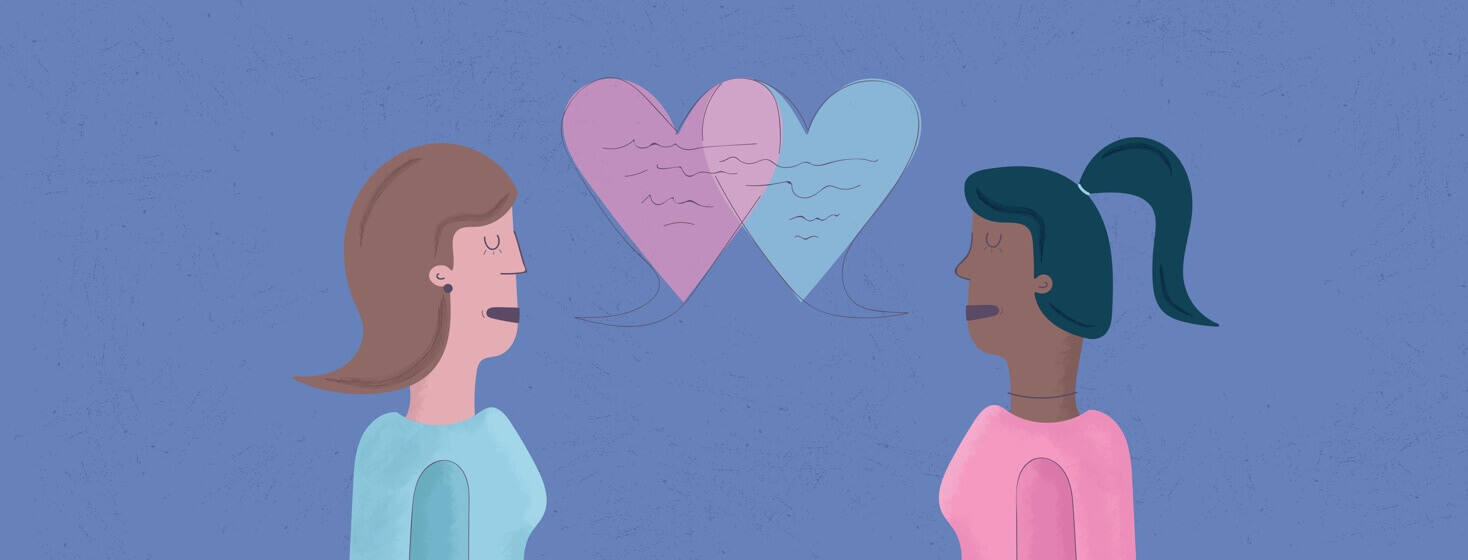Two Caregivers Share Their Stories
In so many ways, caregivers make it possible for people diagnosed with bladder cancer to survive. After I had my TURBT surgery, my mother drove me home from the hospital, gave my two kids a bath, and folded a load of laundry while I rested on the couch. In the weeks after surgery, when I was besieged by anxiety and painful bladder spasms, my husband fixed dinner and picked the kids up from school when I was unable to function.
Caregivers can be isolated and overworked
Even though I didn't need much heavy-duty caregiving (my surgery and recovery were pretty quick and straightforward), so many cancer patients often do. Medical teams are often focused more on the patient than the caregiver, potentially leaving them isolated and overworked.
High emotional stress
Caregiving – which can range from taking notes at doctor appointments to administering medicine, helping with toileting, and beyond – is often stressful work. Statistically, caregivers tend to be older, college-educated women are looking after a relative, unpaid.1 Cancer caregivers also, on average, spend about 33 hours per week caring for their patients. It's no wonder, then, that half of caregivers report “high levels” of emotional stress, and forty percent want more help managing their own physical and emotional stress.1
To get a better understanding of what caregivers go through, I reached out to two who care for someone in their family with bladder cancer and asked for their experience and advice.
Michele's story
My husband, Chad, was diagnosed with Stage 4 metastatic bladder cancer in April of 2018. Both of us were completely in the dark about bladder cancer, so I researched until I was blue in the face! I schedule appointments for Chad and go with him to all his appointments. Chad went through MVAC treatments and now Keytruda immunotherapy. It's been tough, but I have found a way to not be so stressed – my grandkids! I also took up a side hobby to get the word “cancer” out of my mind for a while.
What I would tell other caregivers is to take time for yourself. The rollercoaster ride will be bumpy, but the most important thing is your sanity. Find a goal for you and your patient and don't give up on that goal.
Blair's story
I'm not new to caregiving, but I'm new to caregiving for bladder cancer. We went from TURBT to radical cystectomy/neobladder within 7 weeks, so there was a lot to prepare for in a short amount of time. For the first couple weeks of recovery, I was able to stay overnight with my husband at the hospital and then be home from work to take care of him – but I didn't realize how much I needed to wait on my husband hand and foot in those first weeks. It's exhausting, but eventually, it gets easier and the work reduces as the healing process continues.
Exhausting for everyone involved
A cancer diagnosis can be overwhelming for everyone involved. Your loved one will be going through a very difficult time and will need you to be their advocate at times, so understanding my husband's surgery, potential complications, and recovery benchmarks came in very handy when my husband experienced bumps in the road during recovery. I would say to be involved, read all that you can, and join support groups.
Take care of yourself, too
Take a quick nap when you can so you can recharge, and don't be afraid to reach out for help if you have children at home. Take care of yourself, too. For Christmas, my husband gave me a generous gift certificate to a local spa (I think he was buttering me up for was what coming!). During times when I felt exhausted it was reinforcing to know that I was going to have some TLC once we got through the tough part.
Be positive, try to get outside for some fresh air every day, and pray.

Join the conversation